Fleurs du Mal Magazine


Or see the index
William Blake’s Universe
until 19 May 2024
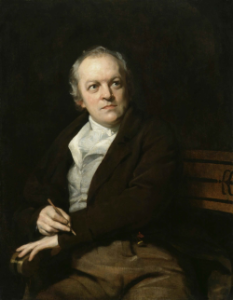 Discover William Blake’s universe and a constellation of European artists seeking spirituality in their lives and art in response to war, revolution and political turbulence.
Discover William Blake’s universe and a constellation of European artists seeking spirituality in their lives and art in response to war, revolution and political turbulence.
Sometimes seen as an eccentric figure or lone genius, William Blake’s Universe is the first exhibition to explore Blake’s boundless imagination in the context of wider trends and themes in European art including romanticism, mysticism and ideas of spiritual regeneration.
This timely new exhibition brings together the largest-ever display of works by the radical British artist, printmaker and poet from our own collection, alongside artworks by his European contemporaries such as the German romantic painters Philipp Otto Runge and Caspar David Friedrich – many of which have never been displayed publicly in the UK until now.
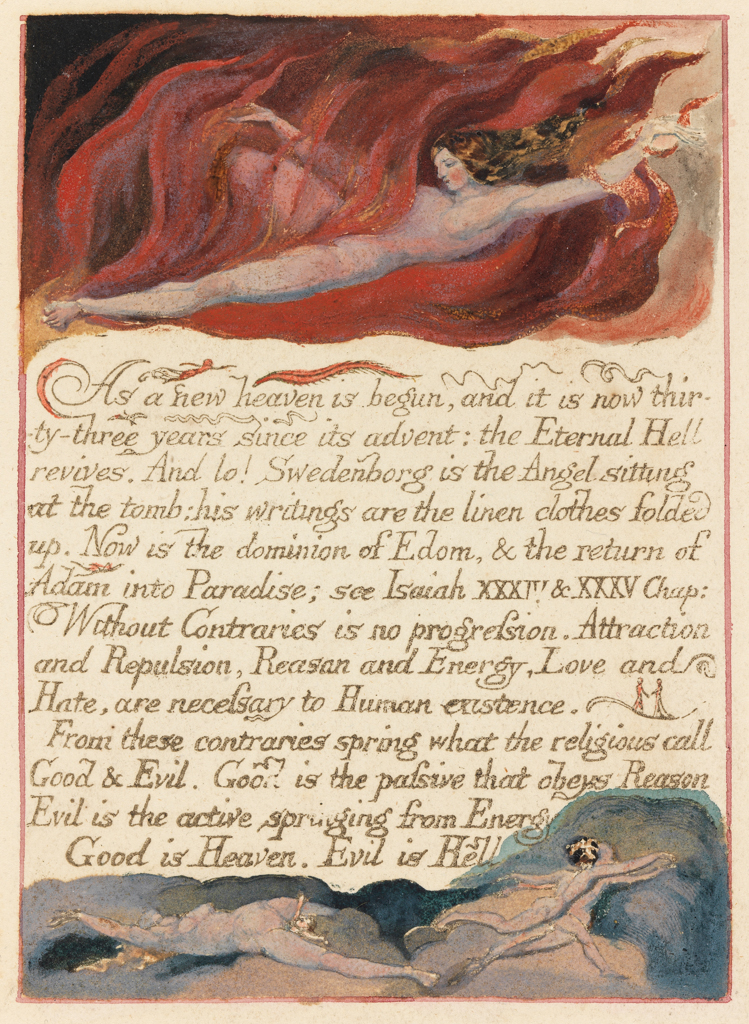
Though these artists never met or connected in their lifetimes, Blake, Runge and Friedrich shared a strong sense of individuality and an unwavering belief in the power of art to redeem a society in crisis.
William Blake’s Universe
until 19 May 2024
University of Cambridge Museums
The Fitzwilliam Museum
Trumpington Street
Cambridge
CB2 1RB
Tel: +44 (0)1223 333 230
Email: tickets@museums.cam.ac.uk
• fleursdumal.nl magazine
More in: Archive A-B, Archive A-B, Art & Literature News, Blake, William, Literary Events
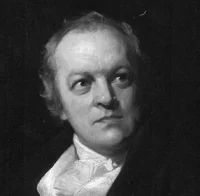
To Winter
O Winter! bar thine adamantine doors:
The north is thine; there hast thou built thy dark
Deep-founded habitation. Shake not thy roofs
Nor bend thy pillars with thine iron car.
He hears me not, but o’er the yawning deep
Rides heavy; his storms are unchain’d, sheathed
In ribbed steel; I dare not lift mine eyes;
For he hath rear’d his scepter o’er the world.
Lo! now the direful monster, whose skin clings
To his strong bones, strides o’er the groaning rocks:
He withers all in silence, and in his hand
Unclothes the earth, and freezes up frail life.
He takes his seat upon the cliffs, the mariner
Cries in vain. Poor little wretch! that deal’st
With storms; till heaven smiles, and the monster
Is driven yelling to his caves beneath Mount Hecla.
William Blake
(1757 – 1827)
To Winter
• fleursdumal.nl magazine
More in: 4SEASONS#Winter, Archive A-B, Archive A-B, Blake, William, CLASSIC POETRY
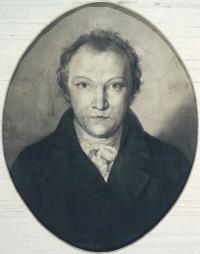
To Tirzah
Whate’er is born of mortal birth
Must be consumed with the earth,
To rise from generation free:
Then what have I to do with thee?
The sexes sprang from shame and pride,
Blown in the morn, in evening died;
But mercy changed death into sleep;
The sexes rose to work and weep.
Thou, mother of my mortal part,
With cruelty didst mould my heart,
And with false self-deceiving tears
Didst bind my nostrils, eyes, and ears,
Didst close my tongue in senseless clay,
And me to mortal life betray.
The death of Jesus set me free:
Then what have I to do with thee?
William Blake
(1757 – 1827)
To Tirzah
• fleursdumal.nl magazine
More in: Archive A-B, Archive A-B, Blake, William, Tales of Mystery & Imagination

The Little Vagabond
Dear mother, dear mother, the Church is cold;
But the Alehouse is healthy, and pleasant, and warm.
Besides, I can tell where I am used well;
The poor parsons with wind like a blown bladder swell.
But, if at the Church they would give us some ale,
And a pleasant fire our souls to regale,
We’d sing and we’d pray all the livelong day,
Nor ever once wish from the Church to stray.
Then the Parson might preach, and drink, and sing,
And we’d be as happy as birds in the spring;
And modest Dame Lurch, who is always at church,
Would not have bandy children, nor fasting, nor birch.
And God, like a father, rejoicing to see
His children as pleasant and happy as he,
Would have no more quarrel with the Devil or the barrel,
But kiss him, and give him both drink and apparel.
William Blake
(1757 – 1827)
The Little Vagabond
• fleursdumal.nl magazine
More in: Archive A-B, Archive A-B, Blake, William, Tales of Mystery & Imagination

The Grey Monk
“I die, I die!” the Mother said,
“My children die for lack of bread.
What more has the merciless Tyrant said?”
The Monk sat down on the stony bed.
The blood red ran from the Grey Monk’s side,
His hands and feet were wounded wide,
His body bent, his arms and knees
Like to the roots of ancient trees.
His eye was dry; no tear could flow:
A hollow groan first spoke his woe.
He trembled and shudder’d upon the bed;
At length with a feeble cry he said:
“When God commanded this hand to write
In the studious hours of deep midnight,
He told me the writing I wrote should prove
The bane of all that on Earth I lov’d.
My Brother starv’d between two walls,
His Children’s cry my soul appalls;
I mock’d at the rack and griding chain,
My bent body mocks their torturing pain.
Thy father drew his sword in the North,
With his thousands strong he marched forth;
Thy Brother has arm’d himself in steel
To avenge the wrongs thy Children feel.
But vain the Sword and vain the Bow,
They never can work War’s overthrow.
The Hermit’s prayer and the Widow’s tear
Alone can free the World from fear.
For a Tear is an intellectual thing,
And a Sigh is the sword of an Angel King,
And the bitter groan of the Martyr’s woe
Is an arrow from the Almighty’s bow.
The hand of Vengeance found the bed
To which the Purple Tyrant fled;
The iron hand crush’d the Tyrant’s head
And became a Tyrant in his stead.”
William Blake
(1757 – 1827)
The Grey Monk
• fleursdumal.nl magazine
More in: Archive A-B, Archive A-B, Blake, William, Tales of Mystery & Imagination

To The Muses
Whether on Ida’s shady brow,
Or in the chambers of the East,
The chambers of the sun, that now
From ancient melody have ceas’d;
Whether in Heav’n ye wander fair,
Or the green corners of the earth,
Or the blue regions of the air,
Where the melodious winds have birth;
Whether on crystal rocks ye rove,
Beneath the bosom of the sea
Wand’ring in many a coral grove,
Fair Nine, forsaking Poetry!
How have you left the ancient love
That bards of old enjoy’d in you!
The languid strings do scarcely move!
The sound is forc’d, the notes are few!
William Blake
(1757 – 1827)
To The Muses
• fleursdumal.nl magazine
More in: Archive A-B, Archive A-B, Blake, William, Tales of Mystery & Imagination
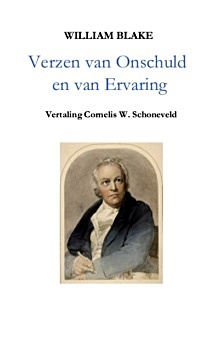
DE ENGEL
Ik had een Droom, die uitleg vraagt!
’k Was een Prinses en was een maagd,
Door een Engel mild bewaakt:
Dwaas verdriet werd nooit gelaakt!
En ik huilde dag en nacht,
En mijn wee werd steeds verzacht,
En ik huilde nacht en dag
En verborg mijn blijde lach.
Dus hij vluchtte op wieken heen;
Toen de dag met blos verscheen
Stelde ik mij, traan droog, te weer
Duizendvoud met schild en speer.
En mijn Engel keerde weer,
Maar mijn wapen sloeg hem neer;
Want mijn jeugdtijd was voorbij,
En grijs hoofdhaar tooide mij
William Blake
vertaald door: Dr. Cornelis W. Schoneveld
THE ANGEL
I Dreamt a Dream! what can it mean?
And that I was a maiden Queen:
Guarded by an Angel mild;
Witless woe, was neer beguil’d!
And I wept both night and day
And he wip’d my tears away
And I wept both day and night
And hid from him my hearts delight
So he took his wings and fled:
Then the morn blush’d rosy red:
I dried my tears & armd my fears,
With ten thousand shields and spears.
Soon my Angel came again;
I was arm’d, he came in vain:
For the time of youth was fled
And grey hairs were on my head
William Blake (1757 – 1827)
Poem: The Angel
Vertaling uit:
Verzen van Onschuld en van Ervaring
William Blake
vertaald door: Dr. Cornelis W. Schoneveld
paperback
gebrocheerd
€ 20,00
ISBN: 978-90-824288-1-0
geïllustreerd
116 blz.
mei 2017
Uitgeverij De Wilde Tomaat
new translations
fleursdumal.nl magazine
More in: - Book Stories, Archive A-B, Blake, Blake, William, TRANSLATION ARCHIVE
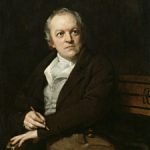
The Angel poetry
I Dreamt a Dream! what can it mean?
And that I was a maiden Queen:
Guarded by an Angel mild;
Witless woe, was neer beguil’d!
And I wept both night and day
And he wip’d my tears away
And I wept both day and night
And hid from him my hearts delight
So he took his wings and fled:
Then the morn blush’d rosy red:
I dried my tears & armd my fears,
With ten thousand shields and spears.
Soon my Angel came again;
I was arm’d, he came in vain:
For the time of youth was fled
And grey hairs were on my head
William Blake (1757 – 1827)
Poem: The Angel poem
fleursdumal.nl magazine
More in: Archive A-B, Blake, William
 De ‘Elegy Written in a Country Churchyard’ van Thomas Gray (1716-1771), voltooid in 1750, is een van de allerbekendste gedichten uit de Engelse literatuurgeschiedenis.
De ‘Elegy Written in a Country Churchyard’ van Thomas Gray (1716-1771), voltooid in 1750, is een van de allerbekendste gedichten uit de Engelse literatuurgeschiedenis.
Typisch voor de 18de eeuw generaliseert en moraliseert de dichter naar hartelust in ‘poëtische’ taal.
Toch illustreert zijn tekst ook op frappante maar voorzichtige wijze trends die tot de ‘allerindividueelste emoties’ van de Romantiek zouden leiden.
‘Far from the madding crowd’ (later geleend door Thomas Hardy als romantitel) stelt de hooggeleerde dichter zich voor eenzaam door het dorpsgebied te zwerven en tenslotte op het dorpskerkhof begraven te liggen.
William Blake (1757-1827), auteur van de beroemde Songs of Innocence and of Experience (1795), sneed in 1797 de tekst van Gray’s Elegy uit een uitgave van Gray’s poëzie uit 1790, bevestigde die in uitsparingen van aquarelbladen en schilderde zo elf bladen met een illustratie rondom de tekst.
Een bekende uitspraak van Blake is ‘wie generaliseert is een idioot’, maar in Gray’s gedicht zag hij blijkbaar vooral de individuele en romantische kant ervan. Zo ontstond een uniek eenmalig product voor een opdrachtgever, dat pas in 1920 in de publiciteit kwam.
Gray’s originele strofen en de naar vorm en inhoud getrouwe Nederlandse vertaling van Cornelis W. Schoneveld staan onder elkaar, naast Blake’s esoterische illustraties.
Far from the madding crowd’s ignoble strife,
Their sober wishes never learned to stray;
Along the cool sequestered vale of life
They kept the noiseless tenour of their way.
Yet e’en these bones from insult to protect
Some frail memorial still erected nigh,
With uncouth rhymes and shapeless sculpture decked,
Implores the passing tribute of a sigh.
x Their name, their years, spelt by the unlettered Muse,
The place of fame and elegy supply:
And many a holy text around she strews,
That teach the rustic moralist to die.
For who, to dumb forgetfulness a prey,
This pleasing anxious being e’er resigned,
Left the warm precincts of the cheerful day,
Nor cast one longing lingering look behind?
Thomas Gray
Ver van het twistend volk, in dwaas verval,
Zwierven hun sobere wensen nooit van huis;
In ’t koele afgescheiden levensdal
Hielden zij koers, zonder het minst geruis.
Ter wering van hun beenderen tegen kwaad
Verzoekt een wrakke zerk, hier opgericht,
In grof reliëf en verzen zwak van maat,
Een zucht van de passant als ereplicht.
x Jaren en naam, door ’n Muze slecht gespeld,
Vervangen lofgezang en rouwgedicht,
En menig heilig woord van Haar vertelt
De vrome landman van zijn dood in zicht.
Want wie zei ooit, vergetelheid ten prooi,
Vaarwel tegen ’t bezorgd maar schoon bestaan,
Verliet het dagdomein, zo warm, zo mooi,
Zonder een draalblik talend terug te slaan?
Vertaling Cornelis W. Schoneveld
Thomas Gray
Treurzang geschreven op een dorpskerkhof
Vertaling en voorwoord Cornelis W. Schoneveld
isbn: 978 90 824288 7 2
Uitg. DWT De Wilde Tomaat
2017, 27 pag.
fleursdumal.nl magazine
More in: - Book News, Archive G-H, Blake, William, POETRY IN TRANSLATION: SCHONEVELD

William Blake
The Sick Rose
O Rose thou art sick.
The invisible worm.
That flies in the night
In the howling storm:
Has found out thy bed
Of crimson joy:
And his dark secret love
Does thy life destroy.
William Blake (1757 – 1827)
Poem: The Sick Rose
fleursdumal.nl magazine
More in: Archive A-B, Blake, William

William Blake
The Lamb
Little Lamb, who made thee
Does thou know who made thee
Gave thee life & bid thee feed.
By the stream & o’er the mead;
Gave thee clothing of delight,
Softest clothing woolly bright;
Gave thee such a tender voice.
Making all the vales rejoice:
Little Lamb who made thee
Does thou know who made thee
Little Lamb I’ll tell thee,
Little Lamb I’ll tell thee;
He is called by thy name,
For he calls himself a Lamb:
He is meek & he is mild,
He became a little child
I a child & thou a lamb,
We are called by His name,
Little Lamb God bless thee,
Little Lamb God bless thee.
William Blake (1757 – 1827)
Poem: The Lamb
fleursdumal.nl magazine
More in: Archive A-B, Blake, William

William Blake
A Poison Tree
I was angry with my friend;
I told my wrath, my wrath did end.
I was angry with my foe:
I told it not, my wrath did grow.
And I waterd it in fears,
Night and morning with my tears:
And I sunned it with smiles,
And with soft deceitful wiles.
And it grew both day and night,
Till it bore an apple bright.
And my foe beheld it shine,
And he knew that it was mine.
And into my garden stole.
When the night had veiled the pole;
In the morning glad I see,
My foe outstretchd beneath the tree.
William Blake (1757 – 1827)
Poem: A Poison Tree
fleursdumal.nl magazine
More in: Archive A-B, Blake, William, DRUGS & DISEASE & MEDICINE & LITERATURE
Thank you for reading Fleurs du Mal - magazine for art & literature